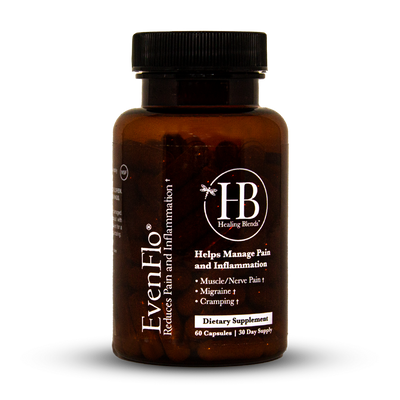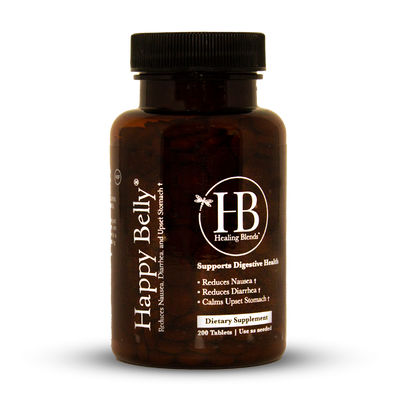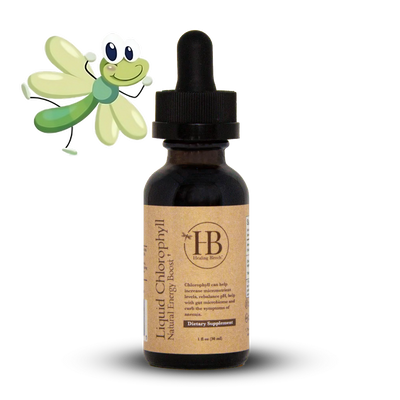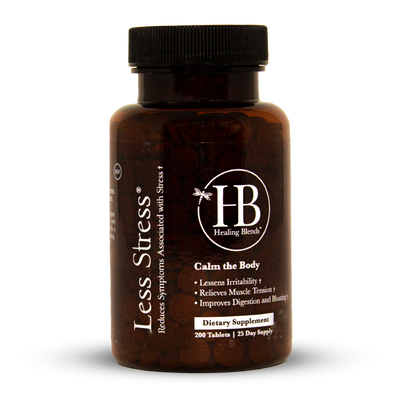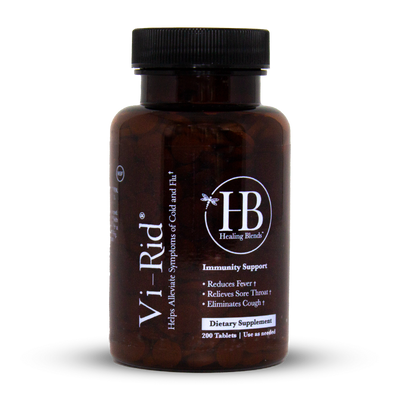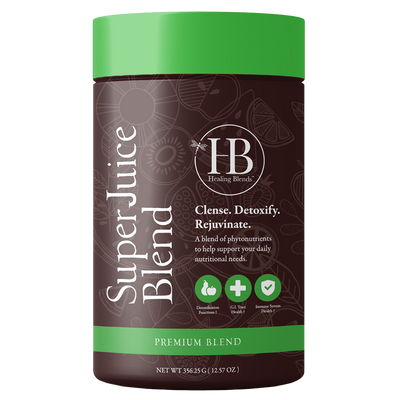The Science of Epigenetics and Detox
For long, it has been thought that disease and illnesses have the strongest connection to the genetic profile of our bodies. You may have a family history of heart disease or type 2 diabetes. The thought here would be that you are doomed to develop these conditions in the future as well. Fortunately, recent breakthroughs in epigenetics have proven that many people have had the wrong idea all along.
Yes, there certainly does seem to be a link between genetics and disease. If your mother or father had a condition like heart disease, then you might be at a higher risk of suffering from the illness later in life yourself. This, however, is not written in stone.
Before we dive deeper into this topic, let’s quickly take a look at a study that was published in the Journal of Environmental Health Perspectives [1]. The paper explains that there are many aspects that can have an impact on the epigenetics of the human body – ultimately changing the way that cells read genes. What we found surprising is that this paper didn’t even focus on the inheritance factor. Instead, the study focused on the following factors that are “toxic” to the genes of the human body:
- Heavy metals
- Diesel exhaust
- Polycyclic aromatic hydrocarbons
- Radioactivity
- Hormones
- Bacteria
- Viruses
- Tobacco smoking
- Pesticides
The Environmental Impact On Genetics
The purpose of our post today is to help us understand how certain factors in our daily lives can become toxic to our genes – turning bad genes on and causing good genes to be switched off. This has an effect on how cells in the body read these genes and ultimately contribute to many diseases, illnesses, and other common medical issues that we are facing today.
A study that was published by three scientists in the Nature Journal explains that the environment that we live in has a major impact on our gene expressions. The chemicals and other factors that we are exposed to on a daily basis ultimately affect which genes are turned on, which ones are turned off, and how our genes are read by cells throughout our bodies.
At the time of the study, science was only starting to make breakthroughs in terms of epigenetics and how genes are affected by factors other than what we inherit from our parents.
In another, more recent, study [2], scientists explain that further research has proven that the environment tends to have a significant impact on the DNA of the human body, as well as gene expressions. The study also lists lifestyle factors as a major influencing factor on epigenetics. The scientists explain that psychological stress, improper sleeping habits, alcohol consumption, smoking, obesity, diet, and all of these factors play a role in either causing toxic effects on our genes or making them healthier.
Detoxification In Terms Of Epigenetics
We have now established that it is not only your genetic inheritance that affects your genes and gene expressions in your body. The environment you live in, and the lifestyle factors that are part of your life also have an impact on your gene expressions. The next step is to move on to looking at how epigenetics can play a role in the detoxification process of the human body.
Detoxing has become quite popular recently, but today we are not talking about the detoxification process that you might already be familiar with. Visiting a local supplement store would likely give you access to products that focus on “detoxing” your digestive system, or perhaps helping to improve the detoxification process of your liver.
Today, we are actually going to take a look at a process that is known as methylation – this is where we connect epigenetics and detoxification at a DNA or genetic level.
What Is Methylation?
To understand the connection and tips that we are going to talk about today, we have to look at what methylation is first. Essentially, this is a type of chemical pathway – a way in which epigenetic modifications occur in the human body.
With methylation, a methyl group is transferred to a cytosine. Cytosine is a term that refers to a base of DNA [3] – there are three other bases that form part of DNA. There are two different ways that methylation can interact with DNA and genes:
- Proteins that are involved in the repression of genes can be recruited
- The binding process of transcription factors onto DNA strands can be inhibited
In the first case, a gene may be turned on. In the second case, the gene may rather be turned off. The result is that the gene will be read differently by cells and systems of the human body.
What Is The Connection Between Epigenetics And Detox?
Now that we looked at methylation, we can move on – and now we are going to take a look at how detoxification works in terms of epigenetics.
The body naturally produces enzymes that are involved in the detoxification processes. During detoxification, toxic substances that are found in the body are converted into substances that are not as toxic. These substances are then usually excreted from the body.
This is where things get interesting: many processes in the body are controlled by genes.
For example, in one study [4], healthy male participants were asked to undergo a six-month training program. All participants were previously relatively inactive in terms of physical activity. DNA methylation was analyzed in the adipose tissue of the participants – both before the study was initiated and afterward.
Following the six-month period, scientists discovered alterations in gene expression among the healthy male participants who were involved in the study. An increase in DNA methylation was identified. The study provided evidence that exercise caused a methylation process that activated certain genes that led to a lipogenesis activity, increasing the rate at which the individual would burn excess fat stored as adipose tissue in their body.
Scientific research has found that genes also affect the specific enzymes in the human body that are involved in the detoxification process. This is essentially how epigenetics connect to detoxification. When we are exposed to environmental toxins and lifestyle factors that adversely affect the human body, it also means that we are shutting off the genes that need to activate the enzymic process for detoxification to be possible. In turn, we are exposed to a higher risk of disease and illnesses.
Now, on the other hand, by looking at how we can improve the function of the human genome, we are able to improve the activation of these processes – by altering our epigenetics and by ensuring the correct genes can be activated to effectively detox the body from toxic and potentially harmful substances.
This can be done by looking at ways to improve the methylation process in your body. There are a variety of strategies that you can use in order to achieve the desired results here. According to one study [5], nutrient intake seems to have a profound effect on the well-being of the human body’s genome – which means with the right nutrients, you may be able to improve gene expressions in your own body.
One of the most important nutrient cofactors mentioned in the study is Methionine. This compound is found in foods like:
- Meat
- Fish
- Poultry
- Shellfish
- Brazil nuts
- Sesame seeds
- Pumpkin seeds
- Teff
- Soybeans
- Spirulina
The same study also mentions the importance of other nutrient cofactors, such as:
- Vitamin B12
- Vitamin B6
- Magnesium
- Folate
- Betaine
On the other hand, the study also notes that a diet that is high in sucrose leads to an inhibition of methylation processes, which may result in the inability to turn on detoxification genes, leading to a lower effectiveness of genes that are responsible for detoxifying the body.
At the same time, it is important that we consider the fact that every person has a very unique body. While the majority of the DNA is similar among individuals, it is the variations in the remaining parts of DNA that makes it difficult to provide a single way for an individual to improve the detoxification process of enzymes in their body by targeting methylation.
In one study [6], scientists explain that there are different genotypes in the body that all assist in handling certain types of detoxification enzymes. Furthermore, genes have an impact on food tolerance, metabolism, nutrient absorption, and even taste preference. This is all unique to you. You may also have genes that favor the handling of one substance over another. For example, the study explains that some individuals have genotypes that favor genes involve in enzyme activities that handle carcinogens over the genes that deal with phytochemicals.
Conclusion
Epigenetics, the study on how certain factors in our lives may have an impact on the expression of genes, plays an important role in understanding the risks of diseases and common ailments. With the study of epigenetics in mind, we have new ways of understanding how to detoxify the human body – not only by cleansing the digestive tract but also by detoxing our genes and the processes that cause the genes to be turned on or off. We looked at the most important ways that our genes become toxic in this post, and addressed some effective strategies to detox genes and improve the methylation process.
References:
- B. Weinhold. Epigenetics: The Science of Change. Journal of Environmental Health Perspectives. Mar 2006.
- J.A. Alegria-Torres, A. Baccarelli, V. Bollati. Epigenetics and lifestyle. Journal of Epigenomics. 26 Aug 2013.
- L.D. Moore, T. Le, G. Fan. DNA Methylation and Its Basic Function. Journal of Neuropsychopharmacology. 11 Jul 2012.
- Multiple Authors. A Six Months Exercise Intervention Influences the Genome-wide DNA Methylation Pattern in Human Adipose Tissue. PLOS Genetics. 27 Jun 2013.
- R.E. Hodges, D.M. Minich. Modulation of Metabolic Detoxification Pathways Using Foods and Food-Derived Components: A Scientific Review with Clinical Application. Journal of Nutrition and Metabolism. 16 Jun 2015.
- J.W. Lampe. Diet, genetic polymorphisms, detoxification, and health risks. Journal of Alternative Therapies in Health and Medicine. 2007.













